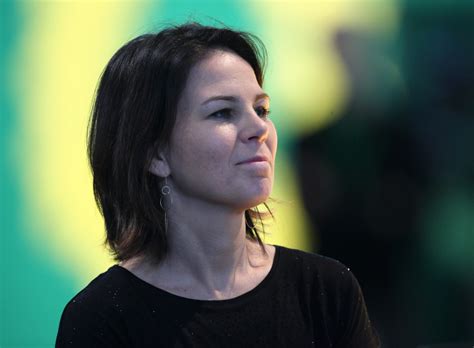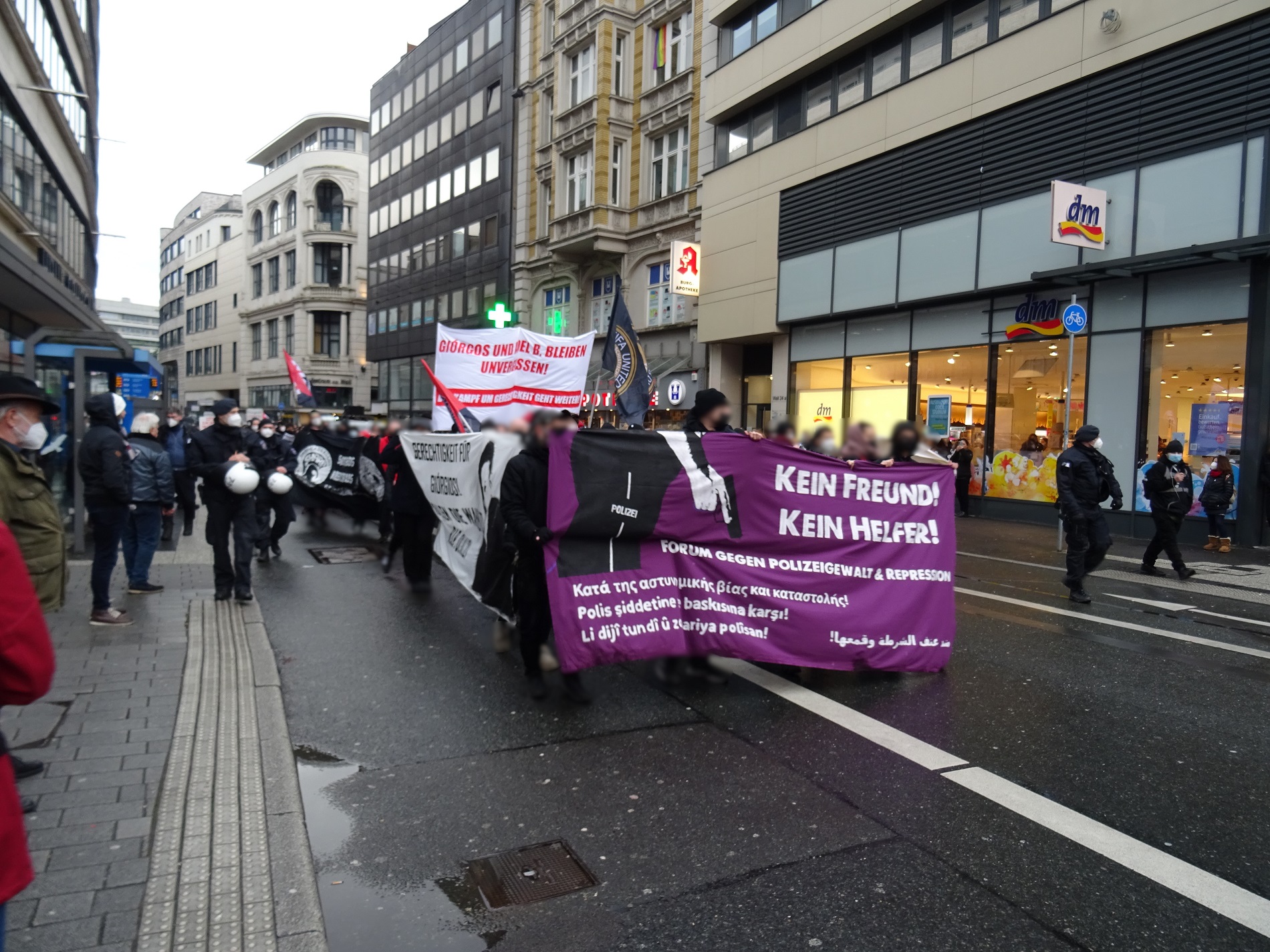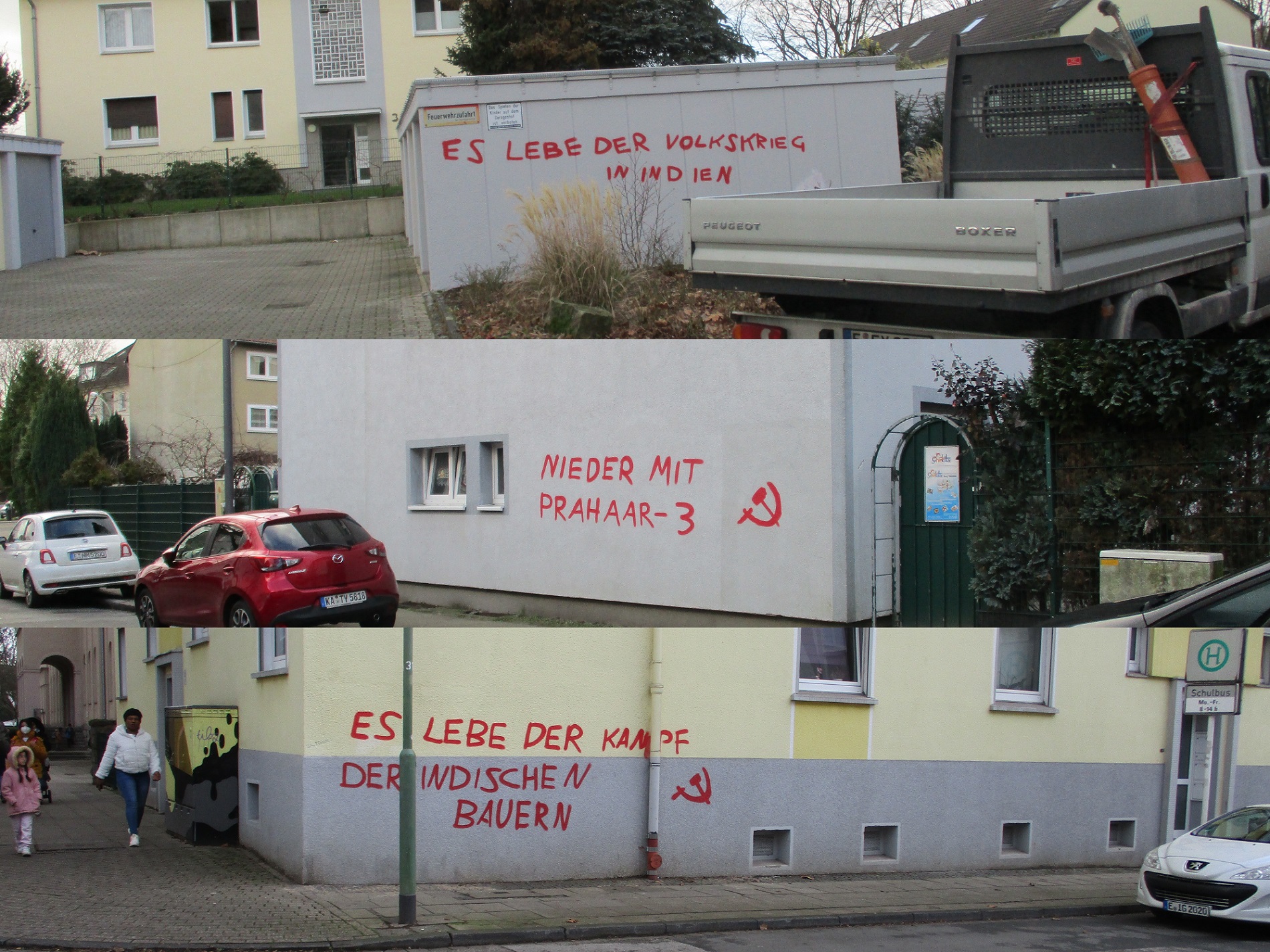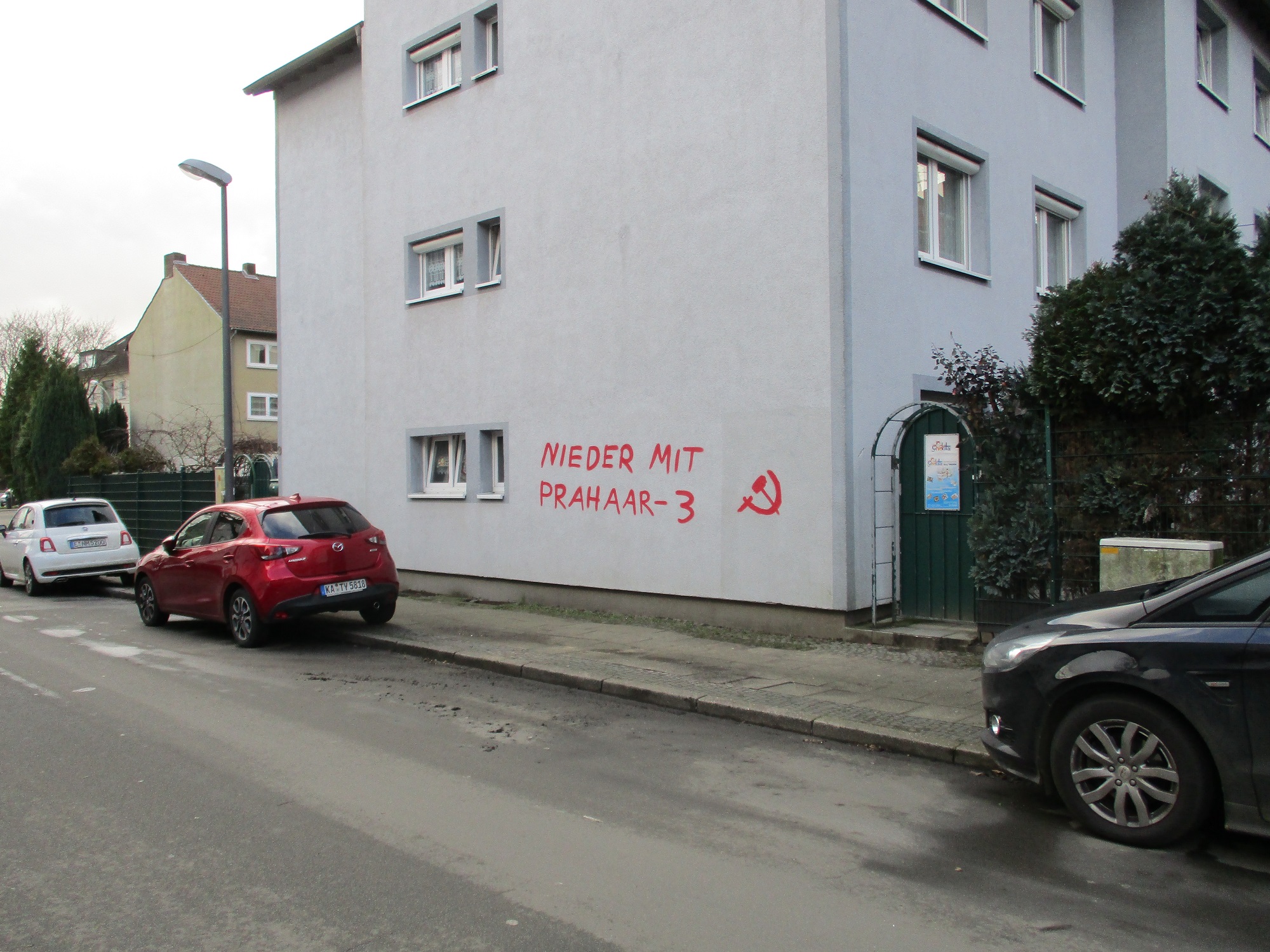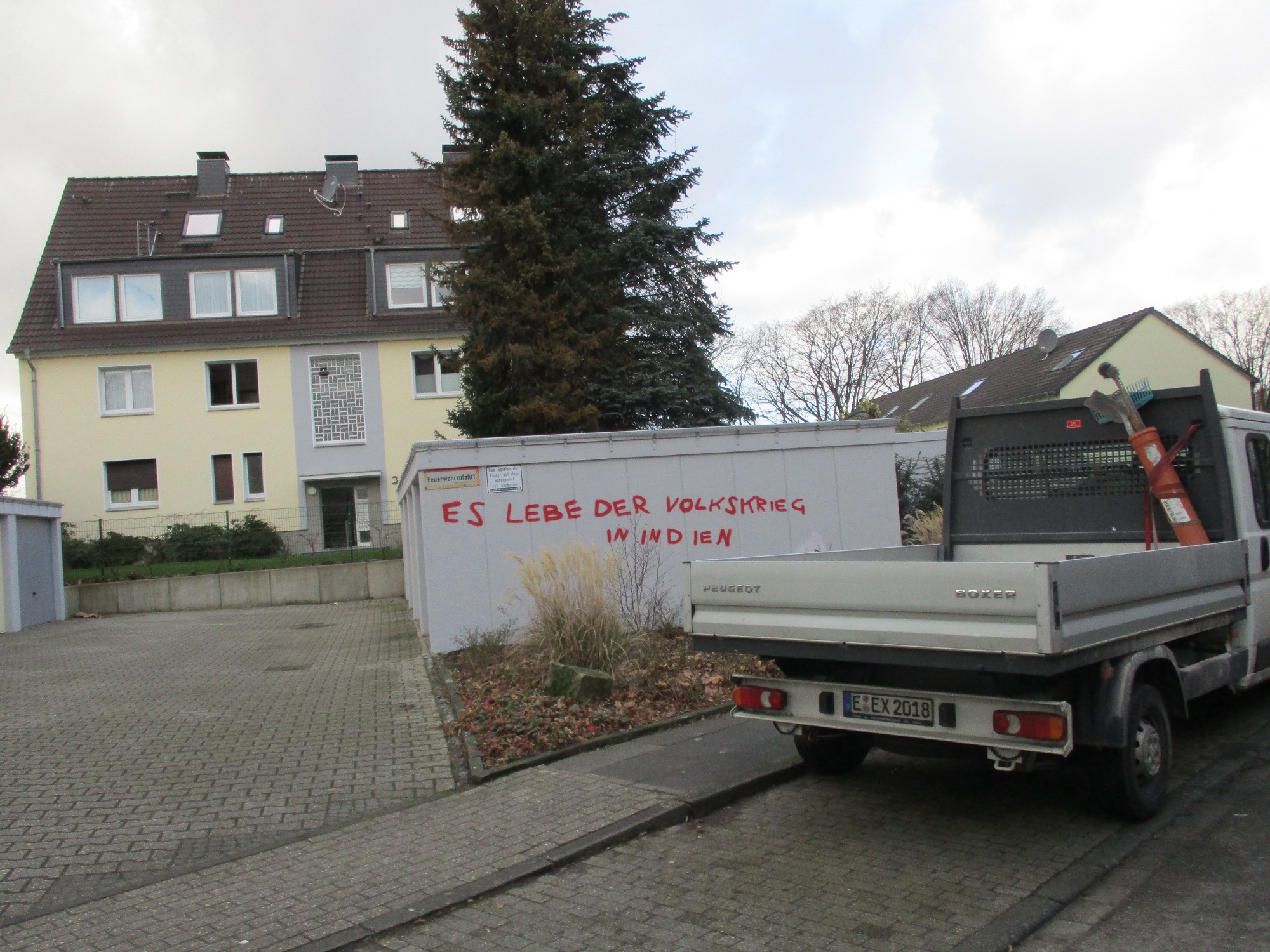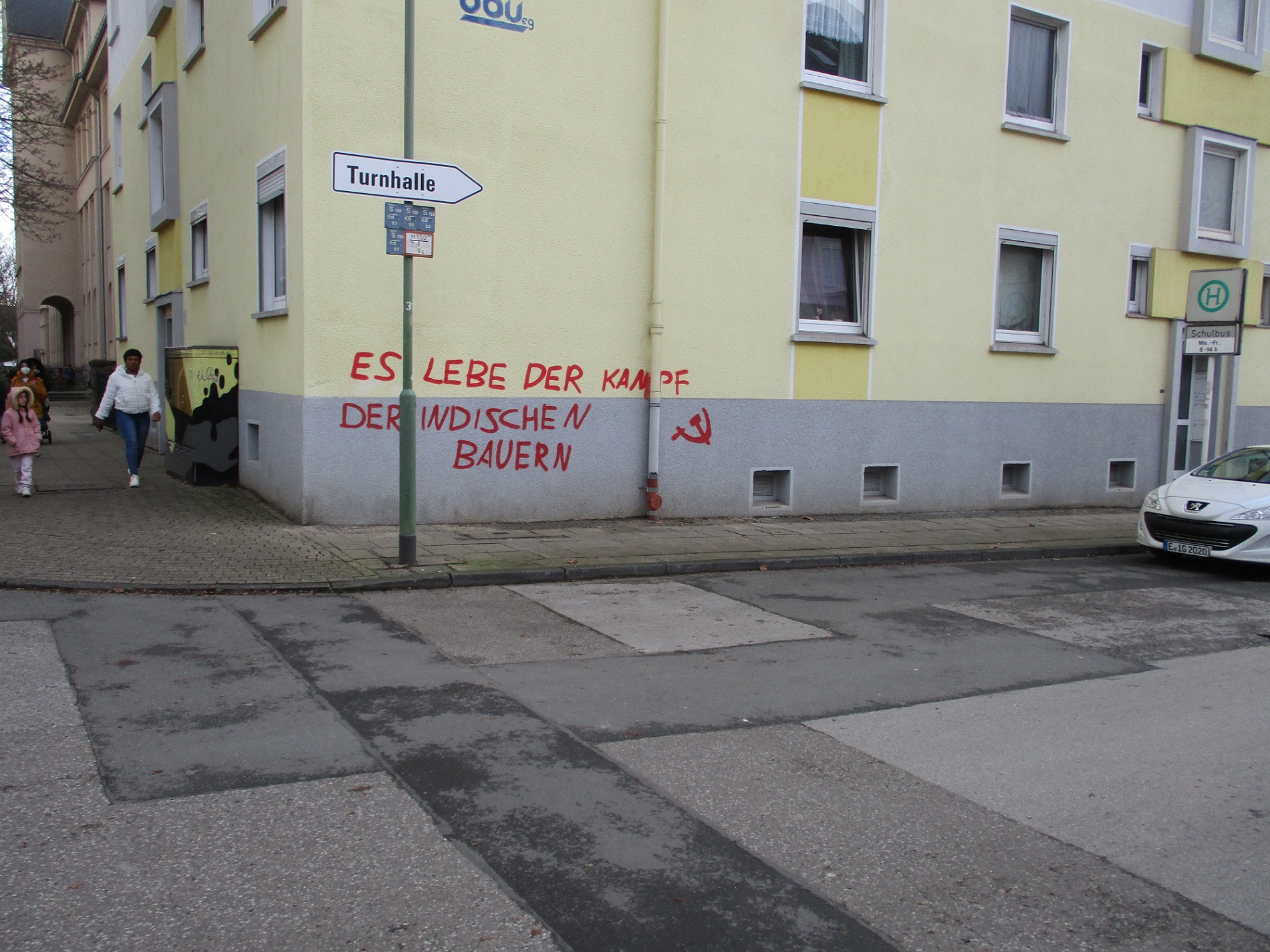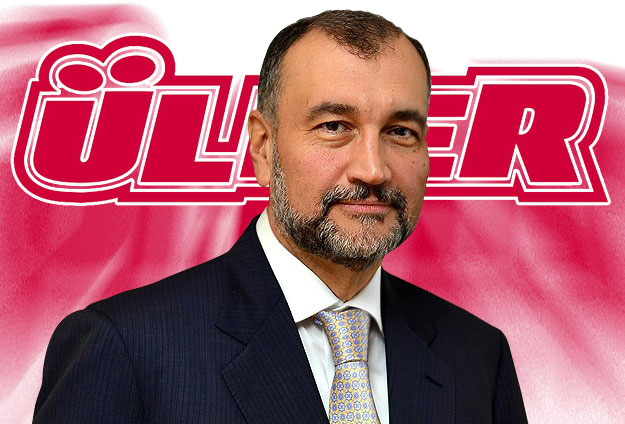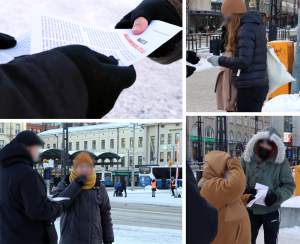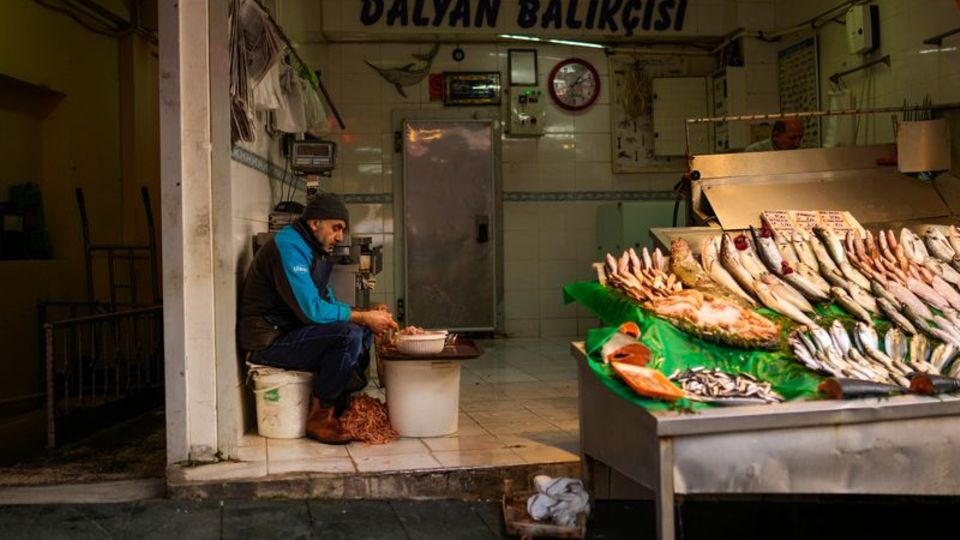Dokumente
Dokumente
- Details
- Category: BRD
Since the 5th of January the states’ prosecutor office is investigating the Green Partys’ management board for embezzlement. In this case the Green Party paid itself an illegal „Coronabonus“.
- Details
- Category: BRD
On January 29 approximately 150 people from different cities in north-Rhine-Westphalia came together in order to commemorate Giórgios Zantiótis who was murdered by the police.
He died on November 1st 2021 in police-custody in Wuppertal. The 25-year-old was stopped by the police because of a brawl that had happened in a club. After they harrassed him with racist phrases they kicked him in the stomach and beat him. The kick was probably the cause of his death that occurred 90 minutes later in custody. Giórgios was operated only two moths prior in the stomach-area because of health problems. Is doctor warned him that even throwing up could be dangerous. Part of this brutal attack was filmed by his sister María.

The police did not take position on this death in custody and reasoned for this by claiming that the death of a 25-year-old was not relevant for the media as Giŕgios had died from natural causes, as they put it.
In a short speech on the demo Giórgios‘ sister demanded the murder of her brother to be solved. After that the demo marched through Wuppertal to different places that are often targeted by police-measures and where they deliberately target migrants.
In different speeches the attention was directed towards the victims of massive police-violence in Wuppertal.
We would also like to point you towards this detailed report by Initiative Gerechtigkeit für Adel
- Details
- Category: BRD
On the occasion of the "Day of Betrayal" in India proclaimed by Samyukta Kisan Morcha, proletarian revolutionaries in Essen have held several rallies in support of the struggle of the Indian people and to denounce the current military operation Prahaar-3, which is directed against the people's war in India. The CPI (Maoist) has also called for participation in the activities of the "Day of Betrayal" and has called for participation in the nationwide bandh on February 23 and 24. The day of betrayal was directed against the BJP central government, which has reneged on its promise to withdraw several agrarian laws.
- Details
- Category: International
Consumer price inflation continues to be an issue on the minds of everyone in Turkey and a serious burden on the shoulders of the people; last December, inflation was 36 percent. However, the Erdogan government's financial policy on this issue (long-term low key interest rate) is not only the procedure to contain or delay the crisis, but even more a deliberate strategy of the ruling clique in the country to enrich themselves even more.
- Details
- Category: International
Here is a brief report on election boycott actions in Finland and the USA recently.
The comrades of the revolutionary website "Red Flag" from Finland published a report on actions in the course of boycotting regional elections in Finland. Among other things, of leaflet distributions and painted-over election posters in the city of Tampere. Regional elections were then held on 23 January 2022. Overall, only 50 per cent of voters went to the polls. This confirms once again the correctness of the election boycott.
- Details
- Category: International
Since long, the global economic crisis of imperialism has been particularly noticeable in Turkey through the decline of the Turkish currency, the lira. In recent years, in response to overproduction, the government has always maintained an extremely low key interest rate in order to stimulate crisis-ridden bureaucratic capitalism - which is driven by the imperialists shifting the crisis onto the oppressed nations (impressive evidence of this: every week there are strikes, protests, etc. in Turkish factories of foreign corporations or subcontractors against mass layoffs) - through more investment, causing massive inflation. What is, of course, once again presented in the German bourgeois press as the sole fault of Erdogan's "stupidity" and "stoic egoism" is simply the way the ruling faction of the big bourgeoisie - and they are not mere "fools" - thinks is best to contain / delay the crisis in the country; and this shows how deeply the crisis has already progressed.
In mid-December, the lira lost 6.5 percent of its value in a single day. The weakness of the currency has caused the prices, particularly of imported products, to rise rapidly. Last December, inflation was 36 percent (compared to the previous year); according to bourgeois media, the "unofficial inflation rate" is much higher. In addition to the consequences for the deepest and broadest masses, who are the main victims of the crisis, many from wealthier segments of the population are also losing their positions and sliding into poverty.
Across the country, student living conditions are deteriorating; in recent months, students in particular have had their housing terminated en masse. A 21-year-old economics and psychology student from Istanbul reports:
"Due to financial difficulties, one of my flatmates had to leave. It is difficult to find a replacement. We had to reject one candidate because he had several outstanding loans. Another candidate because she couldn't afford a bed for her unfurnished room. Weekly shopping is also a challenge. We buy only the essentials: eggs, pasta, yogurt, milk. We don't buy fruit because it's unaffordable, and we haven't had meat once since we moved in in June. I also have a cat and can't afford the food anymore. I can reduce my meals, but not hers. [...] "
In addition to this conversation, the magazine "Spiegel" published interviews with other people from Istanbul at the end of December, describing how the crisis brings them economically to the brink of existence. A 45-year-old doctor reports:
"We work very hard, earn less than colleagues abroad, and can't even take care of patients adequately. [...] Now I would have to replace an old stethoscope. It would cost 100 dollars, about 1500 liras. That's almost as much as I earn in a week. I don't know if I will replace it or just stop using it.
Especially in the past two months, the situation has worsened dramatically. Masks, gloves, hygiene products - the costs have multiplied. I have great difficulty paying my employees. [...] And I can also see the crisis deepening among my patients. People with chronic diseases, who actually belong in a hospital, come to me, because the state clinics are overburdened, and the private ones cannot afford them. [...] "
A 57-year-old street vendor of Turkish sesame curls, Simits, describes the weight of this crisis compared to previous ones:
"The crisis has hit me massively in the past few months - financially and also morally. I don't have time to see my friends or family at all anymore. Every day is all about going to work and coming back home. We have twSo children, ages 30 and 22. My younger son doesn't have a job, so including my wife, I have to support three people. Not that we were living in prosperity before, but this crisis is much worse than the previous ones. [...] The day the price of a simit went up from 2.50 to 3.50 liras, one of my regular customers said he could no longer afford it. That put a stab in my heart."
In a slum in central Istanbul, a 62-year-old peasant woman who moved to the city recounts:
"We live on my husband's pension, and it's getting less every day. I save where I can. When I need detergent, I look for the cheapest and run from one supermarket to the next. A kilo of meat now costs more than 100 liras, who can afford that? So you have to get creative. I made 'fake meatballs' the other day - boiled potatoes and mixed them with bulgur, parsley and onions. We are barely getting by. Sometimes we think about going back to the village, but it would be the same there. Where to live, what to eat, how to make ends meet?
Even the villagers don't know what to do. Every day the food is more expensive than the day before. We have never been so desperate as now. [...] "
The shouts for revolution echo from all sides; the extent of the impoverishment of the masses in Turkey is enormous. The ranks of the deepest and broadest masses are enlarging, and more and more elements from the petty bourgeoisie and also the middle bourgeoisie are taking part in struggles. It is the task of the communists to build a riverbed for all these currents and to lead the masses to destroy imperialist rule, bureaucratic capitalism and semi-feudalism in Turkey and to establish the state of New Democracy.
- Details
- Category: International
Norway
Tjen Folket Media reports that in Bergen, Stavanger and Kristiansand demonstrations against rising electricity prices were held, with the demand of maximum 50 cents (norwegian crown) per kWh. In Bergen about 1000 people were in the demonstration, and a speech from a government party was denounced by the masses. In Stavanger about 300 people were demonstrating, and the “left” and right parliamentarian politicians were denounced by the masses.
In Kristiansand 400-500 people demonstrated, and although right wing parties tried to co-opt the demonstration to harvest voters (since they are in parliamentary opposition), the masses were present with their just demands.
